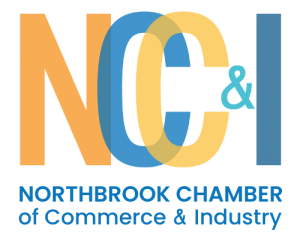Paper or Plastic? When it Comes to the Environment, the Question is Irrelevant
Guest Article from the Village of Northbrook
Paper or plastic? It is a question that American shoppers have been considering since the late 1970s. Fast-forward more than forty years and we know far more about the impact that paper and plastic bags have on our environment. When environmental concerns are considered, the question of “paper or plastic” must transition to us addressing “paper and plastic” if we want to achieve the goals of the Village’s Climate Action Plan.
Here are some fast facts about both types of single use-bags.
Paper
- Paper bag production uses four times as much water as it takes to make a plastic bag. Source: Clemson University 2014
- Each year, over 10 million trees are cut down for paper grocery bags. Source: Columbia 2020
- The production of one ton of paper bags emits 1.39 metric tons of greenhouse gasses, which is equivalent to the amount emitted from 3 barrels of oil. It takes more energy to manufacture a paper bag than a plastic one. Source: EPA 2022; Stanford 2017
Plastic
- Plastic bags are not recyclable in Northbrook’s curbside recycling program.
- 93% of fish examined in the Chicago area have plastic present inside them. Source: Friends of the Chicago River
- Nearly 22 million pounds of plastic debris enter the Great Lakes yearly, and Lake Michigan receives more than any other Great Lake. Source: American Chemical Society 2022
- Plastic bags are used for an average of 12 minutes, but can last for more than 500 years.
10-Cent Bag Tax Coming in 2024
Northbrook recently passed a single-use 10-cent bag tax in an effort to encourage shoppers to use reusable bags at retail stores and reduce pollution to our land, air, and water. Following a recommendation from Northbrook’s Sustainability Commission, the Village Board of Trustees approved the bag tax ordinance at the February 7, 2023, Board Meeting, and the tax will be implemented on January 1, 2024.
The tax is a 10-cent charge for each paper or plastic bag (single-use bag) that the customer uses at the time of purchase when exiting a store. Half of the tax, $0.05, will be retained by retailers, and the other half will be submitted to the Village. The single-use bag fees submitted to the Village of Northbrook will be used to fund sustainability projects as reviewed and approved by the Village Board. The Village will work with area businesses to educate the public on the new tax. Signage and informational resources will be provided to answer questions from shoppers. The Village will also work with community organizations to distribute free reusable bags to the public.
The ordinance affects retail stores larger than 3,000 sq. ft. in building area, with some exceptions. Exemptions apply for restaurants, pharmacies, farmers markets, dry cleaners, and perishable items such as produce. Businesses may provide single-use bags at no charge to customers that participate in SNAP, WIC, or other food assistance programs.
This tax was first recommended in Northbrook’s Climate Action Plan because research finds that such initiatives work to encourage reusable bag usage and reduce stray litter in a community. Both paper and plastic bags are included because there are negative environmental impacts associated with natural resource consumption from the production and end-of-life disposal of both products. We hope that shoppers will embrace reusable bags, and if asked the question “paper or plastic” they will respond “I brought my own.”
The Village appreciates the long-lasting support of the local business community, and any business owners with questions about the bag tax or the Climate Action Plan can reach out to the Village Sustainability Coordinator at sustainability@northbrook.il.us or visit northbrook.il.us/993/Climate-Action-Plan.
